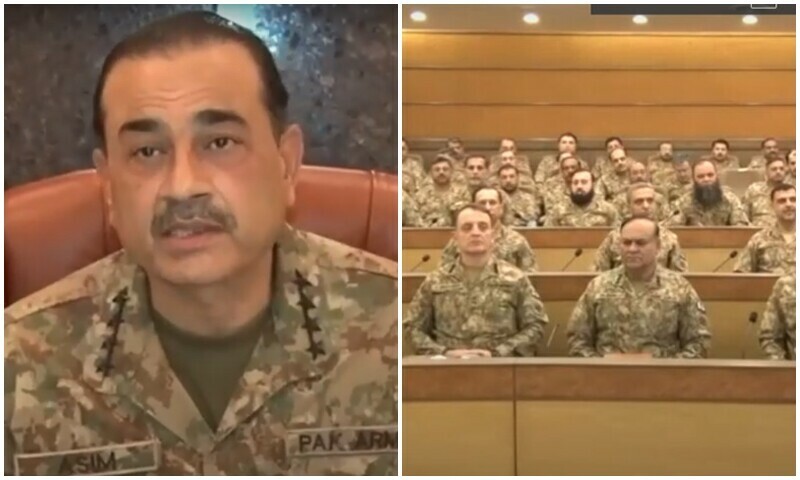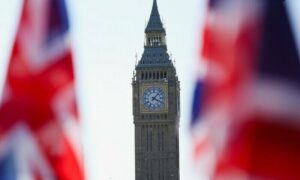Chief of Army Staff (COAS) General Asim Munir and other top military officers on Thursday expressed concern over the spread of “propaganda and disinformation” against the armed forces, stating that those responsible must be brought to justice.
Over the past couple of years, social media campaigns against the army have escalated, reflecting broader tensions within the country’s political and social fabric. The government, often in tandem with the military, has responded with stringent measures aimed at controlling the narrative and stifling dissent.
These measures have led to numerous arrests and legal actions against journalists and social media users accused of spreading “negative propaganda” about the military and the state, resulting in restricted internet access and bans on platforms like X.
The COAS and high-ranking officers revisited these concerns during the 84th Formation Commanders Conference at General Headquarters (GHQ) in Rawalpindi on Thursday, the military’s media wing said.
According to a statement from the Inter-Services Public Relations (ISPR), the participants were briefed on the current internal and external security environment and reviewed the Army’s operational readiness to address evolving threats.
High-ranking officials expressed concern about propaganda spread following the deployment of military personnel in Islamabad to secure key government buildings and provide a safe environment for visiting foreign delegations.
“This pre-planned coordinated and premeditated propaganda reflects the continuity of a sinister design by certain political elements as an attempt to drive a wedge between the public & Armed Forces and institutions of Pakistan,” the statement read.
“This futile attempt, fuelled and abetted by external players, will never be successful,” the statement added.
According to the ISPR, the forum emphasised the need for the federal government to enact stringent laws and regulations to “check unfettered and unethical use of freedom of expression to spew venom, lies and sow the seeds of polarisation”.
“Those spreading fake news for vested political/financial interests need to be identified and brought to justice,” the statement read.
The two-day forum lauded the martyrs of the Armed Forces and law enforcement agencies and citizens of Pakistan who sacrificed their lives for the nation’s security and sovereignty.
The forum also paid tribute to law enforcement personnel who embraced martyrdom during the recent violent protests in Islamabad.
Previously, Gen Munir had warned that social media was being exploited to spread anarchy and false information aimed at the armed forces, while the term “digital terrorism” was now being used to describe the actions of online critics accused of spreading falsehoods.
In August, during an Independence Day speech, the army chief stressed the importance of investigating and verifying information so as not to cause consternation among the people. He had said that while the Constitution allowed for freedom of speech, it also contained “clear limits to what constitutes free speech.”
Counterterrorism operations to continue
According to the ISPR, the participants also conducted a comprehensive analysis of ongoing counterterrorism operations and expressed their resolve to continue neutralising terrorists and their facilitators aiming to destabilise Pakistan.
The forum decided to focus on operations against terrorists active in Balochistan, including the BLA’s Majeed Brigade.
“The Army remains committed to serving the nation & public and guard against all external and internal threats without any bias and political affiliation, and any attempt to pitch innocent people against each other and use of violence as an instrument for vested gains can never be tolerated,” the ISPR’s statement added.
The forum also expressed concern about the “unabated” use of Afghan soil against Pakistan by terrorists, “especially [those] belonging to Fitna Al Khwarij”, the term adopted by authorities to designate terrorists.
“It is in the interest of both neighbouring Islamic countries to rather focus on mutually beneficial engagements and IAG needs to take visible measures to prevent [the] use of its soil by the terrorists,” the statement read.
In July, the government, through an official notification, designated the banned Tehreek-i-Taliban Pakistan (TTP) as Fitna al Khawarij, while mandating all institutions to use the term khariji (outcast) when referring to the perpetrators of terrorist attacks on Pakistan
The country has lately witnessed a sharp uptick in the number of attacks targeting security forces, other law enforcement agencies, and security checkpoints, particularly in Balochistan and KP.
Attacks escalated after the TTP broke a fragile ceasefire agreement with the government in 2022 and vowed to target security forces.
At least 245 people, including 68 security personnel, were killed in a string of terrorist attacks and clashes across Pakistan in November.
The fatalities included 127 terrorists, and 50 civilians, according to data released by the Pakistan Institute for Conflict and Security Studies (PICSS), an Islamabad-based think tank, on Sunday.
November was the second deadliest month after August, when 254 people lost their lives, including 92 civilians, 108 militants, and 54 security forces personnel.
However, in terms of casualties involving security personnel, it is the deadliest month this year compared to October when 62 soldiers were killed.
On socio-economic development
Additionally, the forum noted the need to continue supporting socioeconomic and development projects in Khyber-Pakhtunkhawa and Balochistan by the federal and provincial government for the well-being of citizens “who continue to stand tall against [the] scourge of terrorism”.
Highlighting the Army’s commitment to socioeconomic progress, the forum would continue to “support government efforts in fostering economic growth, cracking down on the illegal spectrum and eradicating terror-crime nexus”, the statement read.
Concluding the conference, the COAS “emphasised the importance of professionalism, operational readiness and the Army’s unwavering dedication to ensuring Pakistan’s security and stability, notwithstanding any odds and challenges”, the statement read.







